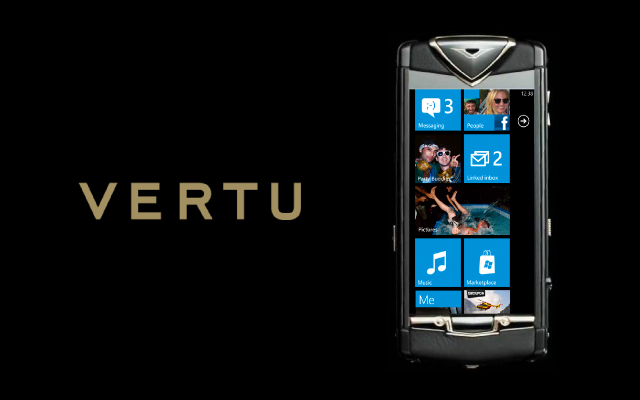Nokia got slapped twice last week as first Fitch, and then Standard & Poor’s, downgraded their credit ratings of the technology giant to ‘junk’ status. Unsurprisingly, Nokia remains defiant, pointing to its large cash balance as an indication of its ability to weather the current storms, as it works towards establishing its Lumia Windows Phones in a fiercely competitive marketplace.
The company has been consolidating its operations around that effort - shifting the focus of its development from Symbian to Windows Phone, moving manufacturing of its devices to Asia, and offloading some of its most saleable assets, including some of its patents, to shore up its cash defences. Another asset that it’s been looking to sell is Vertu, its UK-based luxury handset division, famous for producing some of the most expensive – and arguably the most vulgar – mobile phones in the world.
Nokia brought in Goldman Sachs to advise on how best to manage that sale in December 2011, and it seems that there may now be some progress on that front. The Financial Times reports that Nokia is in advanced talks with private equity group Permira, who may be prepared to pay an estimated €200m EUR ($265m USD / £163m GBP) for the company. The FT emphasises that the real value of any purchase lies not in the handsets themselves, but in the Vertu brand.

Don't expect to see one of these any time soon -
although it's not like you could afford one anyway, peasant.
While those of us who cannot readily afford to drop $300,000 on a phone studded with diamonds might scoff at the idea of such appalling bling being sold for such vast amounts, Vertu has succeeded in building substantial brand equity in the upper echelons of the market. For those who do shop for such superlative devices, Vertu is very highly regarded, and it’s believed that there is much potential for the brand to be expanded further, particularly in lucrative Middle Eastern and Asian markets.
Given that potential, you may wonder why Nokia doesn’t simply hold on to Vertu and save all those riches for itself. Simply put, it seems that Nokia doesn’t want that distraction. The company is rationalising its efforts around the need to make Nokia as efficient as possible to build Lumias for mature and emerging markets, and to shift as many cheap-but-capable devices to ‘the next billion’ device users. Vertu doesn’t fit into those priorities, so it’s being given the elbow.
For most, it will be a relief – for a tiny minority, perhaps, a disappointment – that we probably won’t be seeing any Vertu Windows Phones in the near future.
















18 Comments - Add comment